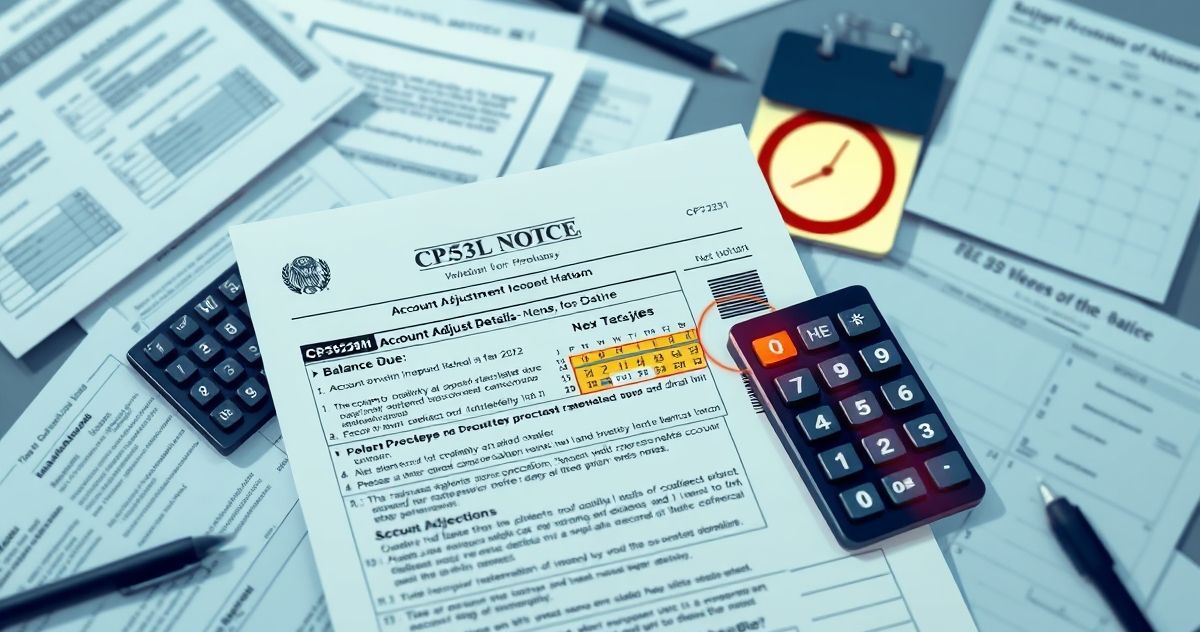Understanding the CP523L Notice: A Comprehensive Guide
The Internal Revenue Service (IRS) uses various forms and notices to communicate with taxpayers regarding their tax obligations. One important document is the CP523L Notice, which is primarily related to installment agreements. Understanding this notice is essential for taxpayers engaged in payment plans, aiming to meet their tax liabilities without financial distress.
What is the CP523L Notice?
The CP523L Notice is a formal communication from the IRS indicating that there have been changes to a taxpayer’s account, specifically affecting their installment agreement. This notice can relate to adjustments in payment terms due to missed payments or other discrepancies. Ignoring or failing to act on a CP523L Notice can lead to more serious consequences, including the termination of installment agreements and potential collection actions by the IRS.
Primary Purpose
The main goal of the CP523L Notice is to alert taxpayers about issues or adjustments in their current installment agreements with the IRS. These notifications help ensure that taxpayers remain informed about their current status, allowing them to take necessary actions to rectify any problems and remain in compliance with IRS requirements. The ultimate aim is to avoid default on the installment agreement, which could lead to additional penalties, interests, and collection efforts.
Key Features or Components
When a taxpayer receives a CP523L Notice, it typically comprises several key components:
- Details of Account Adjustment: Explanation of the changes in the agreement, whether due to missed payments or other issues affecting the terms.
- Balance Due: Information about any outstanding balance or adjustment to the amount owed, including calculations of any additional interest or penalties.
- Next Steps: Instructions on how to correct the situation or reset terms, often including deadlines for response or payment to avoid further repercussions.
- Contact Information: Details on how to reach the IRS for clarification or assistance, which is crucial for taxpayers needing personalized guidance to resolve issues.
Relevant Filing or Compliance Requirements
Upon receiving a CP523L Notice, the taxpayer must thoroughly review the details outlined and take immediate action to comply with IRS requests. This may include making any overdue payments or contacting the IRS to discuss discrepancies or errors. It’s critical to meet any deadlines provided in the notice to maintain the installment arrangement and avoid compounding financial obligations.
Penalties or Consequences for Non-Compliance
Failure to respond to a CP523L Notice can result in severe consequences:
- Termination of Installment Agreement: If the issues outlined in the notice are not addressed, the installment plan could be terminated, resulting in the full balance becoming due immediately.
- Additional Penalties and Interest: Continued late payments or default on terms can lead to additional charges and accumulation of interest, increasing the financial burden.
- Collection Actions: The IRS may initiate enforcement actions such as levies or liens on the taxpayer’s assets, impacting their financial standing and credit.
Importance in Tax Resolution and Compliance
The CP523L Notice plays a vital role in ensuring that taxpayers remain compliant with their agreed payment schedules. By alerting taxpayers to any issues or required actions, it ensures that installment agreements do not default. Understanding and responding to this notice promptly can facilitate smoother communication with the IRS, prevent unnecessary penalties, and support good financial health.
For taxpayers, a proactive approach to handling the CP523L Notice can lead to favorable outcomes, such as renegotiating terms or setting up alternative payment arrangements if unforeseen financial difficulties arise. Engaging with financial advisors or tax professionals when dealing with complex notices like the CP523L can also help clarify actions and alleviate stress.
Ultimately, navigating the intricacies of IRS communications is a critical component of effective tax management. Preparing for possible adjustments and understanding notices like the CP523L can protect taxpayers from added financial burdens while ensuring consistent compliance with IRS guidelines.
In summary, the CP523L Notice should not be taken lightly. Addressing it promptly and correctly positions taxpayers to manage their tax liabilities effectively, minimizing the risk of enforcement actions and maintaining overall financial stability.

